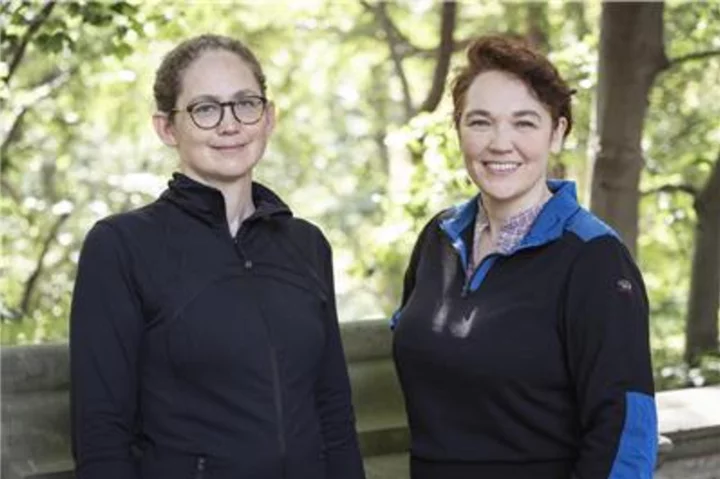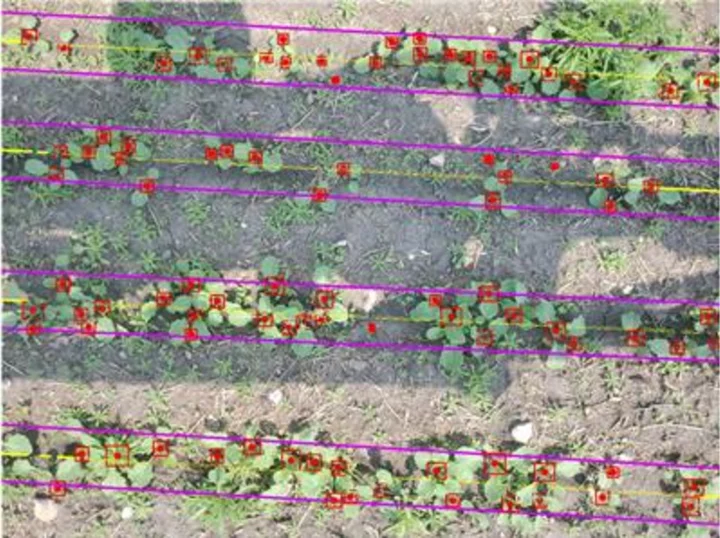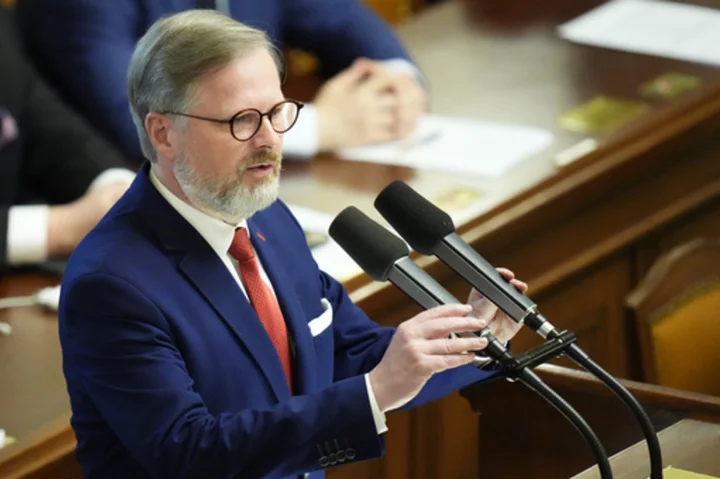BOSTON--(BUSINESS WIRE)--Sep 21, 2023--
JURA Bio, a biotechnology company developing immune-based therapeutics using machine learning and synthetic biology, announced today a research collaboration with Syena, a cell therapy product company and subsidiary of Replay, a genome writing company, to develop T cell receptor (TCR) based therapies.
This press release features multimedia. View the full release here: https://www.businesswire.com/news/home/20230921660505/en/
JURA Bio Founders: Julie Norville, Ph.D., Chief Scientific Officer and Elizabeth Wood, Ph.D., Chief Executive Officer. Photographer: Maki Suzuki
“We’re thrilled to announce our first partnership with Replay and its product company Syena. This partnership validates our approach of using synthesized human T cell repertoires to generate safe and effective libraries to discover antigen specific TCRs at scale,” said Elizabeth Wood, Ph.D., Founder & CEO, JURA Bio. “The human immune system is a powerful source of safe and effective immune receptors, and while one patient might lack a TCR necessary to fight cancer, it may be present in another. By leveraging machine learning to rewrite the gene synthesis process from the ground up, we can produce extraordinarily high-quality immune receptors libraries to discover and train probabilistic machine learning models to ensure a faster development process that identifies TCRs recognizing the most challenging therapeutic targets.”
“JURA Bio’s highly differentiated TCR discovery platform has transformative potential and combines the power of synthetic biology with that of machine learning. We look forward to working with them to identify high performing TCRs recognizing challenging but therapeutically important targets such as KRAS G12D,” said Adrian Woolfson, Executive Chairman, President, and Co-Founder of Replay. “JURA Bio’s unique AI tools and expertise in synthetic libraries offers a differentiated approach for discovering TCRs. This will be invaluable in helping Replay’s cell therapy product company Syena to advance novel TCR-NK therapies into the clinic.”
Lachlan MacKinnon, CEO and Co-Founder of Replay, said: “We are delighted to be partnering with JURA Bio, and their innovative team of synthetic and computational biologists to develop highly differentiated TCR-NK cell therapies. This new partnership is an exciting opportunity for Replay’s cell therapy product company Syena to leverage JURA Bio’s powerful toolkit of machine learning and synthetic protein design coupled with their extensive expertise and to use this to advance the development of our engineered TCR-NK cell therapy programs.”
JURA Bio will receive an upfront payment as well as research funding for the period of the partnership. The details of the financial terms of the agreement were not disclosed. If the option is exercised, Replay and its cell therapy product company Syena will be responsible for global development and hold exclusive worldwide commercialization rights on all TCR-NK therapies resulting from the partnership. JURA Bio will be eligible to receive development, regulatory, and commercial milestone payments in addition to tiered deferred option payments on global net sales for products based on TCRs arising from the collaboration, as well as royalties on products utilizing at least one of the licensed technologies.
Replay launched Syena, an oncology-focused product company, with The University of Texas MD Anderson Cancer Center in February 2023. The engineered TCR-NK technology in Syena is based on the scientific discoveries of Katy Rezvani, M.D., Ph.D., professor of Stem Cell Transplantation & Cellular Therapy at MD Anderson.
“In areas where conventional methods are insufficient, machine learning emerges as the catalyst that unlocks the full potential of cell-based therapy and personalized medicine,” said Julie Norville, Founder and Chief Technical Officer, JURA Bio. “We founded the company in 2017 as a synthetic biology and probabilistic machine learning entity. Our team has built all the tools necessary to define machine-learning driven candidates at an incredible scale, and has been able to test and develop these with incredible speed. We look forward to working with Replay and its cell therapy product company Syena to develop new treatments to address cancers with high unmet medical need.”
In addition to the partnership with Replay and Syena, JURA Bio also announced a $16.1M financing led by Michael Chambers, John Ballantyne, Fontus Capital, and Josh Elkington. The funding will accelerate the mapping of the adaptive immune system. JURA Bio’s aims to complete a predictive map of TCR-antigen-HLA binding powered by an off-the-shelf library of >100B synthesized human T cells and their cognate antigens and HLAs by the end of 2024. It will during this timeframe also expand its machine-learning based gene synthesis into the design and discovery of B cell receptors.
Most existing generative machine learning workflows face a fundamental bottleneck in their ability to synthesize and test their candidates of choice. JURA has built an ML-first workflow that incorporates the relevant underlying chemistry, physics, and biology, as well as developing a statistical framework for evaluating model quality that allows them to build and train flexible and reliable models from huge amounts of data. JURA Bio is able to propose, build, and physically assay candidates at a scale previously unimaginable.
JURA Bio’s ML-improved gene synthesis technology has generated an off-the-shelf library of 100 billion potential human and improved TCR candidates that are ready for antigen-specific TCR discovery and development. The company has already discovered high-value TCRs for prostate cancer and other key neoantigen targets that have never been before recorded in key HLA-types.
In another example, JURA has generated a polyclonal candidate pool for six melanoma patients that were refractory to MART-1 specific adoptive cell therapy. Six refractory melanoma patients failed to respond to adoptive transfer of autologous cells from healthy donors. Using an off-the-shelf HLA-matched variational synthesis library of TCR candidates, JURA Bio identified 10 candidates for expansion and engineering to create a truly personalized therapeutic polyclonal candidate pool for each individual. The company has also manufactured peptidome and virodome-scale libraries of antigens to help determine the underlying mechanisms of autoimmunity.
“It is remarkable how little we know about the cell identities underlying and driving autoimmune disease. We are not able to reliably say how many are restricted to specific individuals or shared by common mechanisms population-wide. In having the ability to screen at the scale of human peptidomes, we will not only learn a lot about potential therapeutics, but also better understand the underlying heterogeneity of autoimmune disease,” said Everett Meyer, Associate Professor of Medicine, Blood and Marrow Transplantation and Cellular Therapy, Director Stanford Cellular Immune Tolerance Program.
"AI-ML and multiplex libraries are useful tools individually, but when combined together they can generate remarkable synergy, known as ML-ML variational synthesis. This has the potential to generate billions to trillions-fold of potential candidates. The mastery of this strategy for TCR, MHC, and T-cell engineering at JURA is without competition and in huge demand," said George Church, Ph.D., Founder & Scientific Advisory Board Chair, JURA Bio.
Additional members of JURA Bio’s scientific advisory board include Debora Marks, PhD (Harvard), David Hafler, MD (Yale), Jay Fishman, MD (Harvard/MGH), Melina Fan, PhD (Addgene), Kevan Herold (Yale), Lester Mackey (Microsoft Research/Stanford), and Everett Meyer, MD/PhD (Stanford).
About JURA Bio
Founded in 2017, JURA Bio has developed an end-to-end generative machine learning and synthetic biology platform for the discovery and development of genetic medicines. With a focus on developing drugs built around the TCR-epitope-HLA synapse, they are developing a best-in-class map from any antigen-HLA pair to any T cell receptor; such a map would broadly advance the development of therapeutics for oncology and autoimmune disease. JURA Bio is based in Boston, MA. For more information, visit www.jurabio.com.
View source version on businesswire.com:https://www.businesswire.com/news/home/20230921660505/en/
CONTACT: Media
Kimberly Ha
KKH Advisors
917-291-5744
kimberly.ha@kkhadvisors.com
KEYWORD: MASSACHUSETTS UNITED STATES NORTH AMERICA
INDUSTRY KEYWORD: RESEARCH GENETICS CLINICAL TRIALS STEM CELLS BIOTECHNOLOGY HEALTH PHARMACEUTICAL SCIENCE ONCOLOGY
SOURCE: JURA Bio
Copyright Business Wire 2023.
PUB: 09/21/2023 08:00 AM/DISC: 09/21/2023 08:03 AM
http://www.businesswire.com/news/home/20230921660505/en









